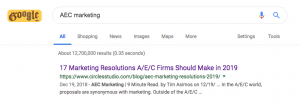If 2021 was the year that non-fungible tokens (NFTs) shot to the moon, and 2022 was the year they crashed back down to Earth, then 2023 might be the year that government officials finally begin to sift the wreckage. Regulatory bodies are zeroing in on crypto crimes like securities fraud and insider trading, putting crypto giants like Kraken and Paxos in their crosshairs. Meanwhile, the Internal Revenue Service (IRS)—diligent as ever—is concerned with the matter of just how big a cut it should take from your NFTs.
That’s as the rule book on taxing digital assets has yet to be written. Cryptoland is freewheeling territory, and the 160-year-old institution seems to be genuinely confused over how to navigate it. On Tuesday, the IRS issued a call for public feedback on possible tax policies for NFTs, with a notice that “describes how the IRS intends to determine whether an NFT is a collectible until further guidance is issued,” and also “requests comments on the treatment of NFTs as collectibles.”
In other words, it’s drafted a potential set of rules and is now testing the waters before diving in. Those rules follow what the IRS calls a “look-through analysis,” in which NFTs would be classified as “collectibles”—subject to taxation described for the IRS’s collectibles section 408(m)—if whatever “rights” or “assets” conferred by the NFT can be classified as collectibles themselves.
“For example, a gem is a section 408(m) collectible under section 408(m)(2)(C), and therefore an NFT that certifies ownership of a gem constitutes a section 408(m) collectible,” the IRS notes.
It seems simple enough. Just as rare physical baseball cards, like 1952’s Mickey Mantle or 1933’s Babe Ruth—which were auctioned for a combined $17 million—might be classified by the IRS as collectibles, Web3 company NBA Top Shot’s NFTs, which let you “own” memorable plays by basketball stars captured in digital format, might also be collectibles. On the other hand, an NFT ticket to a blockchain conference in Tokyo, whose only “right” given is the right to be admitted, would not be.
But dig deeper, and it quickly gets philosophical. Section 408(m)’s collectibles also include “any work of art.” But what is art? For example, the Bored Ape Yacht Club’s 10,000 original NFTs, which depict unamused primates in varying dress, wearing military coats, party hats, and eyepatches, could easily be described as works of art—literally, artists drew their designs. But as the Bored Ape Yacht Club’s pitch goes, the greater value of the NFTs derives from licensing rights to market any products branded with the ape’s likeness. How does that complicate the tax code?
More questions than answers
In its notice, the IRS already settles the confusion for metaverse land plots, many of which are sold as NFTs: “A right to use or develop a ‘plot of land’ in a virtual environment generally is not a section 408(m) collectible, and therefore, an NFT that provides a right to use or develop the ‘plot of land’ in the virtual environment generally does not constitute a section 408(m) collectible,” the agency writes.
Still, there is much more to parse. What about music NFTs? Kings of Leon released the first-ever band album as an NFT in 2021, generating over $2 million in sales at the time. If classic vinyls can be considered collectibles, can historic music NFTs?
For taxpayers, there’s real cash on the line. According to the IRS, whether an NFT is classified as a collectible affects whether selling the NFT could incur a maximum capital gains tax of 28%, among other consequences.
The agency, at least, knows the murkiness of these uncharted waters, and it’s hoping the public might help clarify it. It’s asking for feedback, including on the following: whether it’s nailed “an accurate definition of an NFT”; if there are “instances in which there are concerns with applying the [look-through] analysis”; and “what factors might be considered to determine whether a digital file constitutes a ‘work of art.’”

For those who have thoughts, the IRS requests them by June 19, to help Uncle Sam stay hip to the times.
(2)





